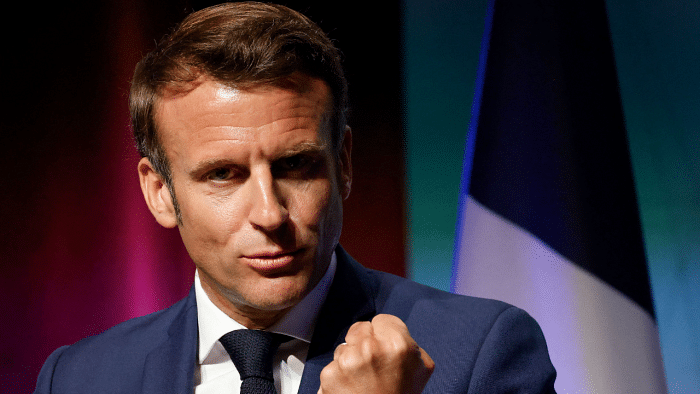
France on Thursday braced for another day of protests and strikes to denounce President Emmanuel Macron's pension reform after talks between the government and unions ended in deadlock.
There have been signs that the two-and-a-half month protest movement is starting to lose some momentum and unions will be hoping for a mass turnout on the 11th day of action since January.
All sides in the standoff are awaiting the verdict on April 14 over the reform from France's Constitutional Council, which has the power to strike out some or even all of the legislation.
Macron, currently out of the country on a visit to China, is facing the biggest challenge of his second term over his flagship pension overhaul, which includes hiking the minimum retirement age from 62 to 64.
Protests descended into violent unrest after Prime Minister Elisabeth Borne on March 16 invoked a controversial executive power to ram the bill through parliament without a vote.
Unions said a meeting with Borne on Wednesday made no progress after she refused to discuss going back on the minimum retirement age of 64.
"It's clearly a failure when the prime minister won't even allow a way into that discussion," said Cyril Chabanier, speaking on behalf of the country's eight main unions after they walked out barely an hour into the talks.
It was the first such gathering between the two sides since the government presented the contentious pensions bill in January.
Despite refusing to budge on the issue, Borne said she would not move forward with any other labour topics "without social partners".
"We are experiencing a grave democratic crisis," said Laurent Berger, head of the centrist CFDT union.
Macron is on a visit to China for the rest of the week, where an aide denied there was a "democratic crisis" in France given that the pension change was in Macron's manifesto during presidential elections last year.
"You can't speak of a democratic crisis when the bill has been enacted, explained to the public and the government is taking responsibility for it," said the aide, asking not to be named.
Union chiefs called for French people to take to the streets and strike en masse on Thursday.
However, turnout in the previous round of strikes and protests last Tuesday was down on the week earlier. A record number of people, more than 1.2 million, marched against the reform nationwide on March 7.
Meanwhile, the Paris metro system is for the first time on a strike day expected to be working with minimal disruption, according to operator RATP.
Sophie Binet, the new leader of the CGT trade union, called for more protests and strikes.
"We have to continue mobilising until the end, until the government understands there is no way out other than withdrawing this reform," she said.
"The government will not be able to govern the country until this reform is repealed."
Just 20 percent of school teachers are expected to strike on Thursday, the Snuipp-FSU union said.
Activists on Wednesday unfurled a banner at the top of the capital's landmark Arc de Triomphe, reading "No to 64".
The government has argued that the changes are necessary to prevent the pensions system from plunging into deficit.
In the rest of Europe, people mostly retire in their late sixties as life expectancy has increased.
Critics say the pensions reform is unfair for workers in tough jobs who start their careers early, as well as women who interrupt their work life to raise children.
If the Constitutional Council gives its green light on April 14, Macron will be able to sign the changes into law.
But the standoff has eroded his popularity, with a poll suggesting Wednesday far-right leader Marine Le Pen would beat him if the presidential election of last year were repeated now.
The survey from the Elabe group for the BFMTV news channel indicated Le Pen would score 55 percent and Macron 45 percent if they faced each other in a run-off vote.